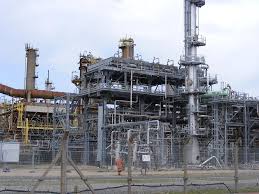The federal government has announced plans to completely privatise all the country’s oil refineries, marking a significant shift in Nigeria’s oil sector reforms.
This development was disclosed by Sunday Dare, Special Adviser on Media and Public Communications to President Bola Tinubu, through a reforms tracker shared on his X (formerly Twitter) account.
The tracker highlights key milestones achieved by the Tinubu administration in the oil sector, focusing on strategies to enhance local refining capacity and eliminate fuel scarcity.
“Full privatisation of Port Harcourt, Warri, Kaduna refining in the works.
“Local oil refining and production to peak steadily with Dangote and modular refineries active. With full local refining capacity gradually being met, days of fuel queues to end,” Dare wrote.
Nigeria’s oil refining infrastructure includes four major refineries: two in Port Harcourt, Rivers State, with a combined installed capacity of 210,000 barrels per day (bpd); the Warri Refining and Petrochemical Company Limited (WRPC), with an installed capacity of 125,000 bpd; and the Kaduna Refining and Petrochemical Company Limited (KRPC), with a capacity of 110,000 bpd. Together, these refineries have an installed capacity of 445,000 bpd.
However, these facilities have been largely moribund for years, operating far below their installed capacities despite substantial financial investments in rehabilitation by successive administrations.
The government is banking on the operationalisation of the privately-owned Dangote Refinery, as well as other modular refineries, to meet local refining needs.
The Dangote Refinery, which is expected to refine 650,000 bpd, is projected to play a critical role in achieving self-sufficiency in fuel production, thereby curbing Nigeria’s dependency on imported petroleum products.
The move to privatise the refineries aligns with Tinubu’s broader economic reforms aimed at fostering efficiency and reducing public expenditure in key sectors.
While the details of the privatisation process are yet to be disclosed, experts anticipate it could attract significant investments and reposition Nigeria’s oil sector for sustainable growth.
The Tinubu administration has also indicated that achieving full local refining capacity will signal the end of persistent fuel queues, which have plagued the country for decades.
Do you want to share a story with us? Do you want to advertise with us? Do you need publicity for a product, service, or event? Contact us on WhatsApp +2348183319097 Email: platformtimes@gmail.com
We are committed to impactful investigative journalism for human interest and social justice. Your donation will help us tell more stories. Kindly donate any amount HERE




